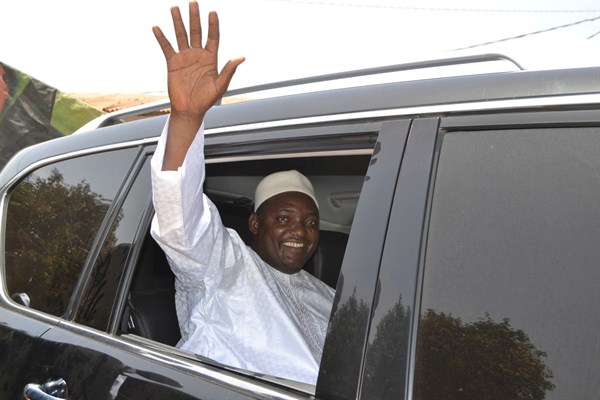In January 2017, under pressure from other West African leaders and much of his own population, Gambia’s longtime dictator, Yahya Jammeh, flew into exile in Equatorial Guinea. His successor, Adama Barrow—the winner of an election whose results Jammeh at first respected, and then disavowed—promised to pursue accountability for crimes committed during Jammeh’s more than 22-year tenure.
So far, Barrow’s administration has had little luck concerning Jammeh himself, whose hosts in Equatorial Guinea are refusing to extradite him. Nevertheless, authorities recently arrested several of Jammeh’s top former associates, holding out the possibility of some justice. But at the same time, some Gambians are decrying what they see as creeping authoritarianism on the part of the new government.
In late January, Gambian authorities arrested two of Jammeh’s former generals, Umpa Mendy and Ansumana Tamba. Initially among the coterie that went into exile with Jammeh, Mendy and Tamba reportedly fell out with the former strongman, prompting their decision to return home. Their arrest may serve a dual purpose for the Gambian government, though: facilitating investigations into past crimes, but also reducing the possibility of a coup organized by former Jammeh officials.

